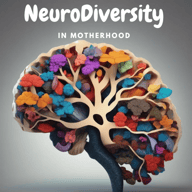Mothers Raising Neurodivergent Children, how does the Harvard Study of Adult Development help us?


Motherhood is a journey filled with complexities and joys, especially for those raising neurodivergent children. In this context, the Harvard Study of Adult Development findings, one of the longest-running studies on human happiness and well-being, offer valuable insights that can support mothers navigating this unique path. Understanding these lessons can help mothers foster emotional and social connections, which are vital for their well-being and that of their children.
The Importance of Relationships
One of the significant findings from the Harvard Study is that strong relationships are fundamental to long-term happiness and emotional health. The study reveals that individuals who nurture close connections with family and friends have better mental health and life satisfaction. Establishing and maintaining these relationships is essential for mothers raising neurodivergent children.
Neurodivergent children may struggle with social interactions and communication, which can sometimes lead to isolation for both the child and the mother. By building a supportive network of friends, family, and other parents who understand the nuances of neurodiversity, mothers can create a positive environment that enhances both their emotional well-being and that of their children.
Fostering Emotional Well-Being
In addition to emphasising relationships, the Harvard Study highlights the significance of emotional well-being in overall life satisfaction. For mothers, taking time to focus on their mental health is crucial. Finding moments for self-care and pursuing interests outside of motherhood can be rejuvenating. This could include joining support groups, participating in hobbies, or engaging in professional development.
When mothers prioritise their emotional well-being, they cultivate a positive atmosphere at home. Children often sense their parents' emotional states; when mothers feel grounded and happy, they can communicate more effectively and connect more deeply with their neurodivergent children. Creating a safe space where emotions can be expressed openly can help children feel more secure and understood.
Celebrating Uniqueness
The Harvard Study emphasises that each person's journey is unique, which resonates deeply with the experience of raising a neurodivergent child. Mothers should embrace the unique qualities and strengths their children possess. Recognising that neurodivergence is not a deficit but a different way of processing the world can empower mothers to advocate confidently for their children's needs.
Celebrating achievements, no matter how small, can also encourage a positive mindset. Mothers should aim to foster their children's interests and talents in art, science, music, or academics. By aligning their parenting approach with the child's unique strengths, mothers help build self-esteem and resilience, paving the way for better social connections in the future.
Adapting Social Connections
Given the challenges that neurodivergent children may face in establishing social connections, mothers can play a proactive role in facilitating these relationships. Engaging in community activities, playdates, and structured social skills groups can create opportunities for children to practice their social skills in supportive environments. Connecting with like-minded families can ease isolation and provide valuable peer support.
Conclusion
The insights from the Harvard Study of Adult Development provide a powerful reminder of the importance of relationships and emotional well-being in our lives. For mothers raising neurodivergent children, these lessons are particularly relevant. By focusing on nurturing their mental health, fostering meaningful connections, and embracing their child's uniqueness, mothers can cultivate an environment conducive to growth and happiness. It's a continuous journey, and through understanding and support, mothers can navigate the complexities of neurodiversity with strength and resilience, ensuring a brighter future for themselves and their children.
